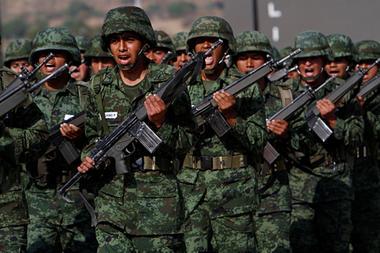Re: “Four Mexican officers detained in alleged corruption probe”

Dear Editor,
In his May 19th article, “Four Mexican officers detained in alleged corruption probe,” Mariano Castillo provides a thorough overview of the drug-related corruption scandal surrounding the four high-ranking military officers detained for questioning in Mexico earlier this month. His piece, however, neglects to emphasize the institutional importance of the unfolding investigation. The armed forces consistently rank among the most trusted institutions in Mexico. The current controversy is wholly uncharacteristic for the military—particularly within the upper echelons. Though only one of the four officials remains on active duty, and the cartel which reportedly bribed military personnel for protection is no longer functioning, the recent detentions by the attorney general’s office merit a more nuanced analysis.
While Castillo acknowledges that the militarization of the state’s conflict with narcotrafficking organizations has sparked criticism due to heightened opportunities for corruption, he should have more clearly illustrated how historically rife that disapproval has been. The belief that involvement with the cartels would corrupt the military first gained broad acceptance during Salinas’ administration, and was so widespread at the turn of the century, that President Vicente Fox campaigned on a pledge to withdraw the armed forces from the conflict altogether, only reneging on his promise after taking office. Calderón’s decision to increase troop deployment on cartel combat missions by 133% within his first two years was met with some censure, but interestingly, the Mexican public has expressed growing support for the military’s role in the drug war over the past six years. Opinion polls demonstrate that 65% of Mexicans thought anti-drug efforts would corrupt the armed forces in early 2007, while only 34% held that view in June 2009. Whether this historically incongruous trend continues may very well depend upon the outcome of the present inquiry.
Sincerely,
Veronica Salas
Research Associate at the Council on Hemispheric Affairs

